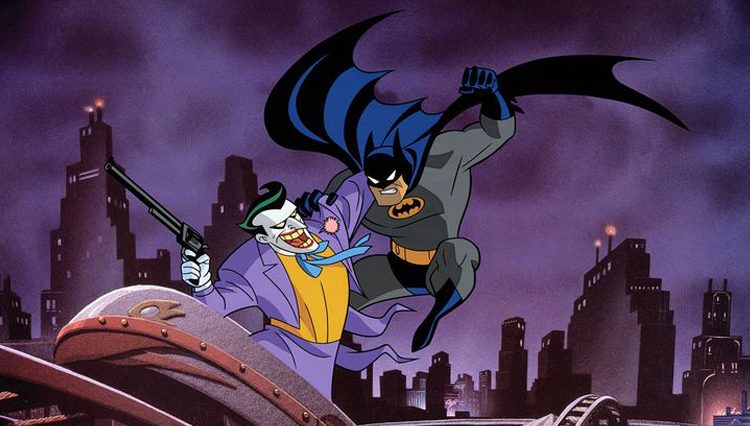
Ed Kemper’s an interesting cat. He’s well-spoken, a gifted conversationalist. He seems genuinely interested in what people want to discuss, and he will ask his own questions. He’s a big, tall man: 6’9″, nearly 300 pounds. He has a high IQ. He was 10 years old when he killed his cat. He was 15 when he killed his grandparents. Before his 25th birthday, he had murdered ten more people. He was known as the “Co-ed Killer.” The day FBI special agents Bill Tench (Holt McCallany) and Holden Ford (Jonathan Groff) meet him, they are surprised to find an amiable young man instead of the monster they were preparing to examine. He tells them what he was feeling when he killed. He even offers speculation about why he became the “Co-ed Killer.” In 1977, there was no “criminal profiling.” There was no interest in getting inside the heads of deviants to discover their motives.

At the show’s inception, Ford is teaching hostage negotiation techniques to a class of raw cadets in Quantico. He shows Dog Day Afternoon to his class and then engages in rehearsals of hostage situations. He was given the teaching assignment as a “promotion” after saving a hostage’s life in Braddock, Pennsylvania even though the gunman took his own life. Older, more seasoned veteran Bill Tench works in Behavioral Sciences and agrees to take Ford with him across the country as he gives criminal psychology lectures for local law enforcement. At first, it seems cops (as a group) aren’t interested in the inner-workings of the criminal mind. They scoff at Holden’s suggestion that Charles Manson’s near-lifetime of incarceration may have contributed to his later behavior. They’re happy to apprehend killers and throw them in jail. It’s a punch-the-clock kind of job. You put on your uniform, and your gun and badge, and you do the dirty work nobody else wants to do. Some have a greater calling, to level the playing field for the public, but most go home at the end of their shift, take a shower and go to bed as human beings. They wake up the next morning and do it all over again.
Tench and Ford aren’t cops. They wear bland suits and polished shoes. Sometimes they will be called upon to recruit the more observant or intuitive of law enforcement individuals, but mainly it’s a long and grueling road trip; a monochromatic travelogue of cheap motels, rented cars, and greasy truck stop food, and usually in murky surroundings. This is where Ed Kemper comes into the picture. Cameron Britton is almost a dead ringer for Kemper and he brings substance and intrigue to what could have been an easy depiction of a sociopath. He was nominated for an Emmy in 2018, losing to Ron Cephas Jones in This is Us. Despite the Bureau’s unease with Tench and Ford’s methods, headway is being made. Occasionally Ford and Tench are called in on other investigations. In Sacramento, a local cop asks for assistance in two separate but similar cases. A woman is savagely beaten and her dog is murdered. Another woman is killed. Her dog is also murdered, so Ford believes this may be a “sequence” killer.

Using criminal psychology as their guide, Ford and Tench eliminate the most obvious suspects until they begin to observe the behavior of a young man and his animosity for his mother and, more importantly, her dog. If psychology can’t prevent crime, it can at least narrow the list of suspects by examining criminal history. Sometimes the psychology goes too far. Tench and Ford will press a suspect with inculpatory interrogation until hostility coils to the surface. Ford isn’t one for “people skills,” where Tench draws on his experience. Ford is like a newborn baby given growth hormone and stuffed in a suit. Tench, based on his haircut, looks like a former Marine. They are yet another variation of The Odd Couple, which seems to be a staple of character development going on 50 years. Tench is a heavy smoker. He is given to fits of temper and masculine anger. Ford is a gentle soul who speaks in a calm voice until he is given cues from his colleagues to behave in other, more remunerative ways.

Mindhunter puts us right in the middle of the many interviews Tench and Ford conduct with criminals, suspects, and persons of interest. It makes us complicit in either the actions of the criminals or the investigators. I found myself absorbed in thought processes. What is he trying to hide? What is he really telling me? What is she so frightened of? Rage, it seems, is the key factor of Mindhunter. Someone is always initially angry at a situation, or at a person, and then acts on that anger. Rage may be the key factor in most, if not all, violent crime. It was his mother that initially set off Ed Kemper. It was Monte Rissell’s mother that sparked the anger that made him rape and murder five women in Virginia. Abusive mothers are gold when it comes to unearthing the motivation of violent crime, particularly in men. I wonder why that is. I have my theories, but they’re personal so I won’t share them.
A lot of us know how to handle our rage. Some of us don’t show the rage but instead keep it at bay while we try to do our best in this life. Some of us convert our rage into creativity and we make ugly color-by-numbers art. Some of us weather the rage and become fervent believers in the concept of karma. Some of us go one step further and manifest the rage. The design of Mindhunter is ordered, spartan, and sterile in contrast with the messy ’70s, but in keeping with producer David Fincher’s aesthetic. Fincher’s movies have an orderly messiness to them, where we see a filthy room but the filth has been carefully constructed. Characters, particularly Tench, Ford, and later, Wendy Carr (Anna Torv), are dressed perfunctorily inhabiting their costumery as though they have no choice but to dress the way they dress. Again, a great deal of thought is put into thoughtlessness.

The aforementioned Wendy Carr is a psychologist working with Boston University who is consulted on several cases as well as to lay the groundwork and terminology for this pioneer’s excursion into criminal thought processes. She is later revealed to be a lesbian, but I don’t understand why or how this is important unless it is to either confirm the collective male fear about “career gals,” or to expose the rampant sexism in the workplace back in the ’70s. Women were always working and achieving. Men, particularly in 2019, are being called out for gender-based slights. Why does Wendy have to be gay? How would her job be impacted if she were any other way? What if Wendy was a happy wife, or a lonely spinster?
We know Holden has a loopy, but educated girlfriend, and we know Tench is locked into his marriage with an old-school “homemaker” while caring for his autistic child. We also know that Holden is the center of the show, and the focus of understanding. Is it important to know that Wendy is a lesbian? Asking for a friend! Sometimes the personal lives of the characters intersect with the work they hope to accomplish. When Holden goes shoe shopping with his girlfriend, he strikes upon the idea to present a shoe-fetishizing murderer with a pair of large pumps in exchange for his cooperation, which the murderer proceeds to masturbate to. Some killers are more likable than others. Montie Rissell and Richard Speck are jerks. Holden knows he has to speak their language and play the part of Devil’s advocate, but the Office of Professional Responsibility takes issue with him when Speck files a complaint accusing him of playing games with his head.

Holden’s zeal gets the better of him when he begins to suspect a popular school principal of pedophilia because he has the admittedly inappropriate tendency to tickle students’ feet. His suspicions raise eyebrows with the Superintendent of schools and the principal is fired, which ruins his career as an educator. The hard part of getting through all this is that we don’t know if Holden’s methods are right or wrong. There an old saying, attributed to William Blackstone in 1765: “It is better that Ten Guilty Persons Escape than One Innocent Suffer.” It’s all trial and error at this point, but at least by the ninth episode, we have a name for these kinds of criminals: serial killers. By season’s end, Ford and Tench almost telepathically communicate with each other as to the motivations of killers. The language, the structure of which was beginning to develop in the first episodes, has now blossomed into short-hand. Mindhunter is gripping television.



